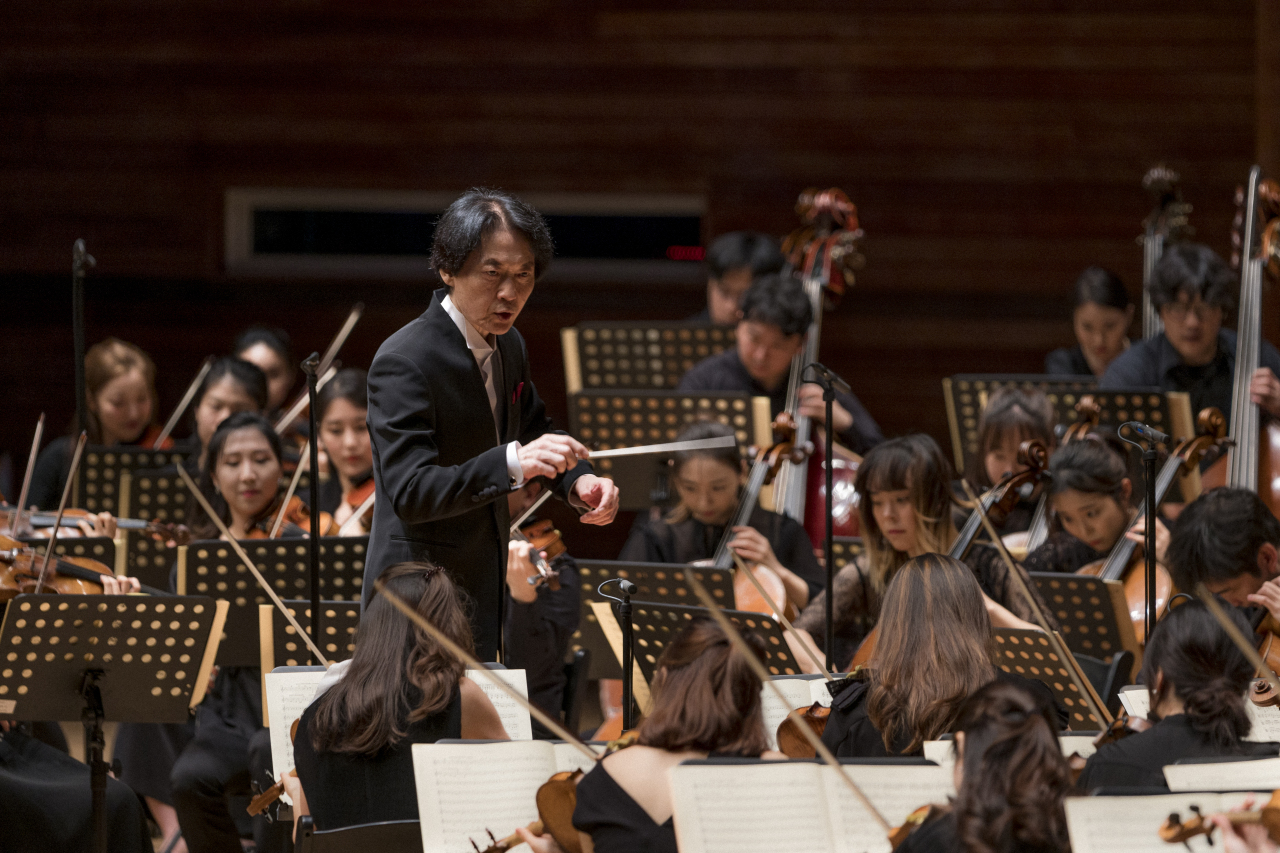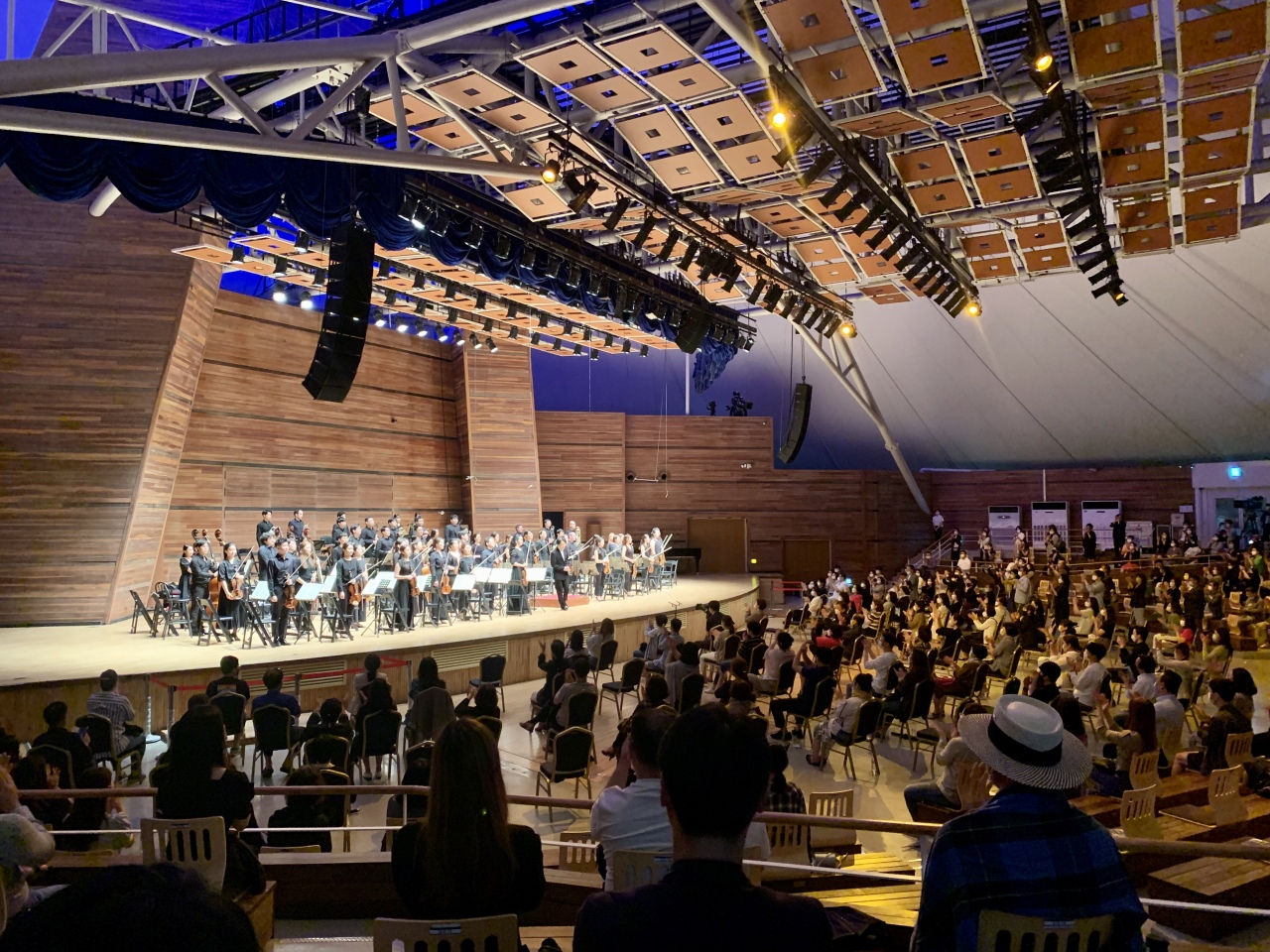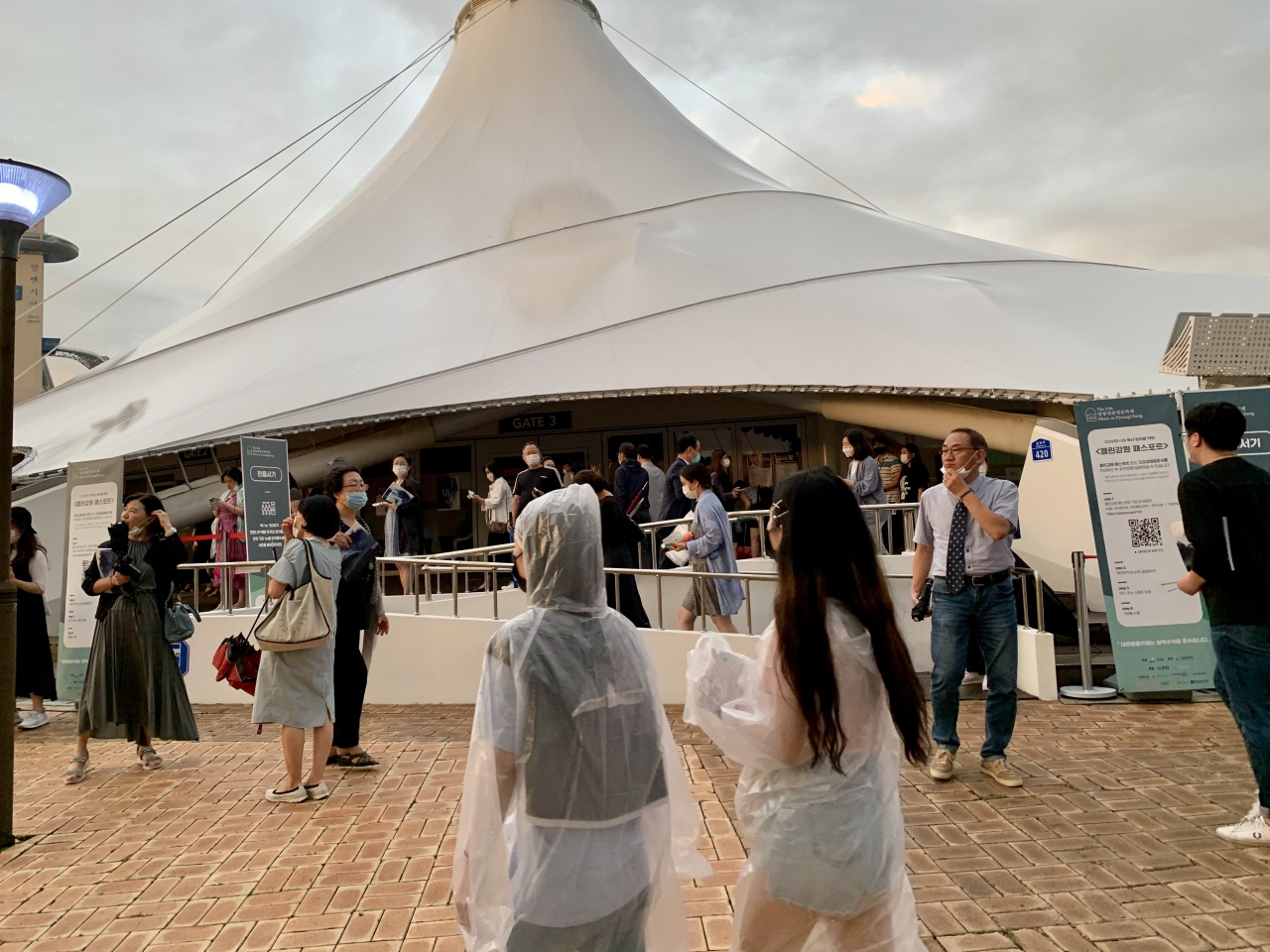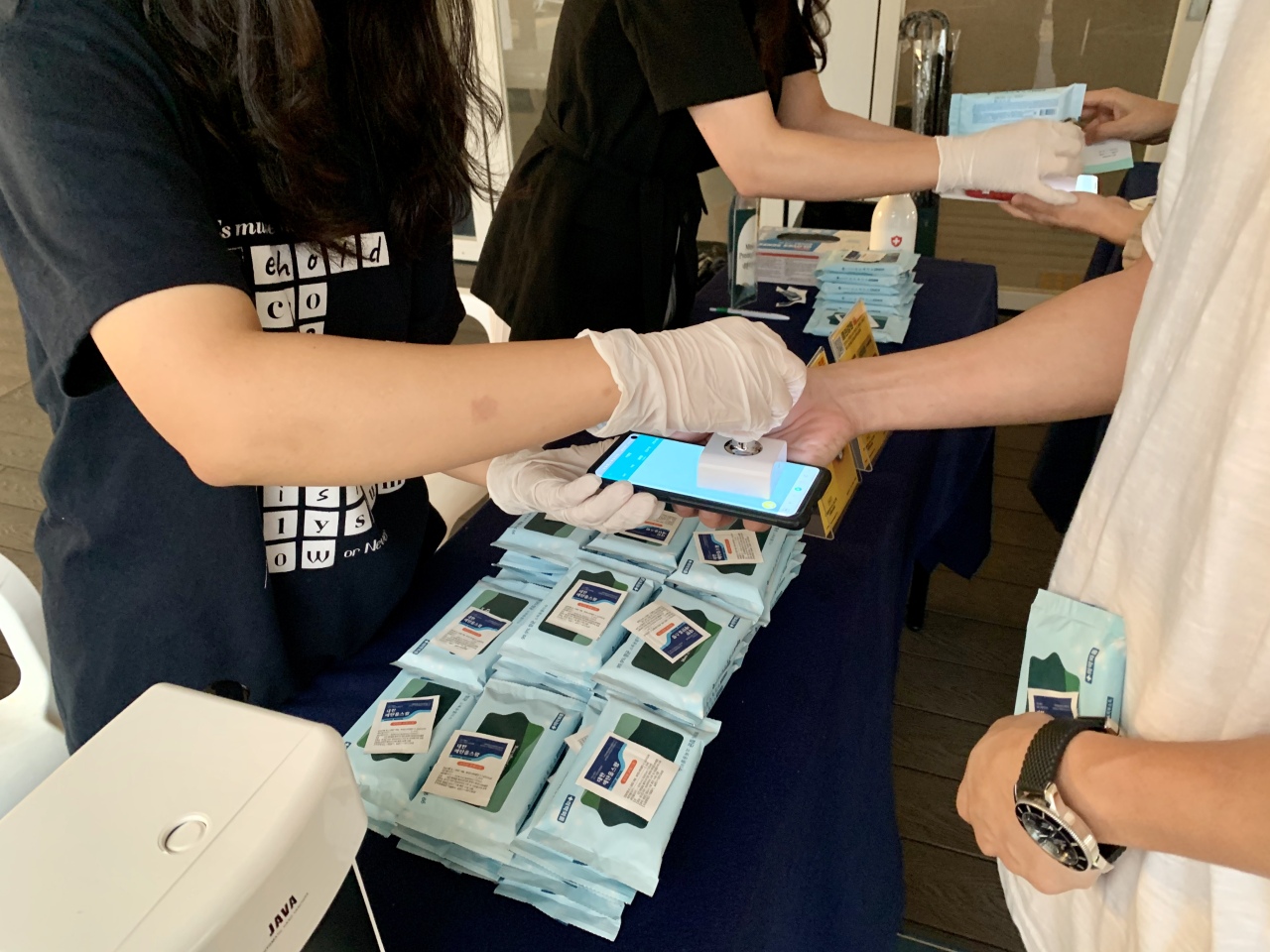 |
Conductor Chung Chi-yong and the PyeongChang Festival Orchestra present Beethoven’s Symphony No. 5 in C minor, Op. 67 at the Alpensia Music Tent in Pyeongchang, Gangwon Province, Saturday. (MPyC) |
PYEONGCHANG, Gangwon Province -- The 17th Music in PyeongChang (MPyC) wrapped up its three-week run of concerts on Saturday amid heavy rain.
The music festival, held in the mountainous county of Pyeongchang, commemorated the 250th anniversary of the birth of Ludwig Beethoven this year, like many other music festivals across the world.
The event was titled “Es Muss Sein” -- part of an inscrutable note “Muss es sein? Es muss sein!” written by Beethoven in the manuscript of his final String Quartet No. 16, Op. 135 in 1826, a few months before his death. The note translates to “Must it be? It must be!”
While heavy rain and wind hit the Alpensia Music Tent, the finale of the festival “Now or Never” concert was held.
 |
Seating plan of the Alpensia Music Tent was adjusted to lower down on the number of audience members to the half of the usual. (Im Eun-byel / The Korea Herald) |
Soprano Lee Myung-joo went onstage to sing Beethoven’s “Ah! Perfido!” Op. 65. Though Lee presented a passionate performance, the tent could not provide the right acoustics to deliver the soprano’s mournful voice.
Celebrated pianist Son Yeol-eum, who won the second prize at the International Tchaikovsky Competition in 2011 and is also the artistic director of the festival, played Beethoven’s Piano Concerto No. 4 in G major, Op. 58.
After the performance, Son shared the flowers she had received with the members of the PyeongChang Festival Orchestra onstage, creating a heartwarming scene.
After an intermission, the orchestra, under the baton of conductor Chung Chi-yong, delivered Beethoven’s Symphony No. 5 in C minor, Op. 67, with the rain accompanying from outside.
The familiar melodies of the symphony were more enough to thrill the audience, connecting them with the great maestro despite the 250 years separating them.
On Friday, a day before the finale, the “Elysium” concert was held. Clarinetist Kim Sang-yoon presented Debussy’s Premiere Rhapsody, creating a pastoral mood.
Violinist Svetlin Roussev, who is close with Son, played and directed the orchestra for A.Part’s “Fratres” and Beethoven’s Symphony No. 7 in A major, Op.92. Beethoven’s seventh symphony -- written when the maestro had serious difficulties with his hearing -- is often associated with the idea of hope.
Roussev seemed to be in full awe after the performance, passionately thanking the audience.
 |
Visitors in raincoats pass by the Alpensia Music Tent in PyeongChang, Gangwon Province, Friday. (Im Eun-byel / The Korea Herald) |
This year, the festival was met with some huddles regarding the ongoing COVID-19 pandemic. However, like its title “It must be,” the festival delivered the message that music must go on.
To comply with the social distancing policy, five of the nine main concerts were held at the Alpensia Music Tent, which has more space flexibility than the Alpensia Concert Hall.
However, as the tent is a half-outdoor auditorium with just a ceiling, outside noises -- mainly from summer vacationers -- interrupted the concert experience for some audience members sitting in the back.
The lineup featured more domestic musicians than in past years due to the pandemic crisis. Though much of the program had to be changed last minute, the circumstances unexpectedly allowed top tier Korean musicians like Park Ji-yoon -- concertmaster of the Radio France Philharmonic -- and violinist Lee Ji-hye of the Bayern Radio Symphony Orchestra, to join the festival. Some overseas-based musicians came to Korea for the festival, undergoing a two-week self-quarantine.
Though it is all about music, the festival focused on the keyword of safety this year.
 |
A staff member gives an “electronic stamp” to a festivalgoer using the Clean Gangwon Passport app, after checking his health condition. (Im Eun-byel / The Korea Herald) |
Prior to entering the auditorium, the festivalgoers had to “check in” using the Clean Gangwon Passport app, a digital entry log system managed by Gangwon Province. Alternate seats in the auditorium were kept empty. Audience members had to wear masks at all times.
Despite the challenges, the festival wrapped up with a high attendance rate. Before the opening of the festival, around 94 percent of the tickets for the nine main concerts were sold.
By Im Eun-byel (
silverstar@heraldcorp.com)







![[Weekender] Korea's traditional sauce culture gains global recognition](http://res.heraldm.com/phpwas/restmb_idxmake.php?idx=644&simg=/content/image/2024/11/21/20241121050153_0.jpg)



